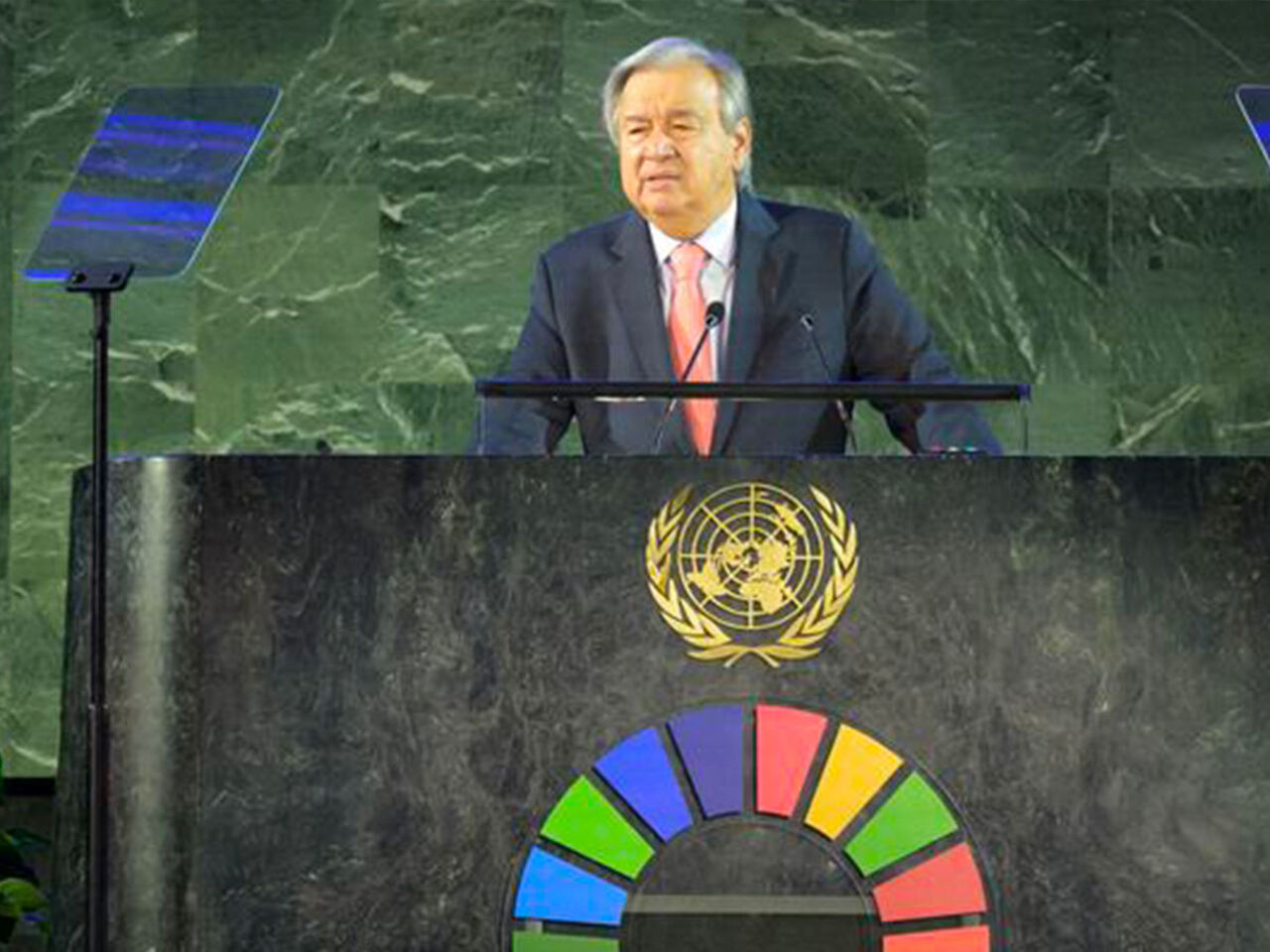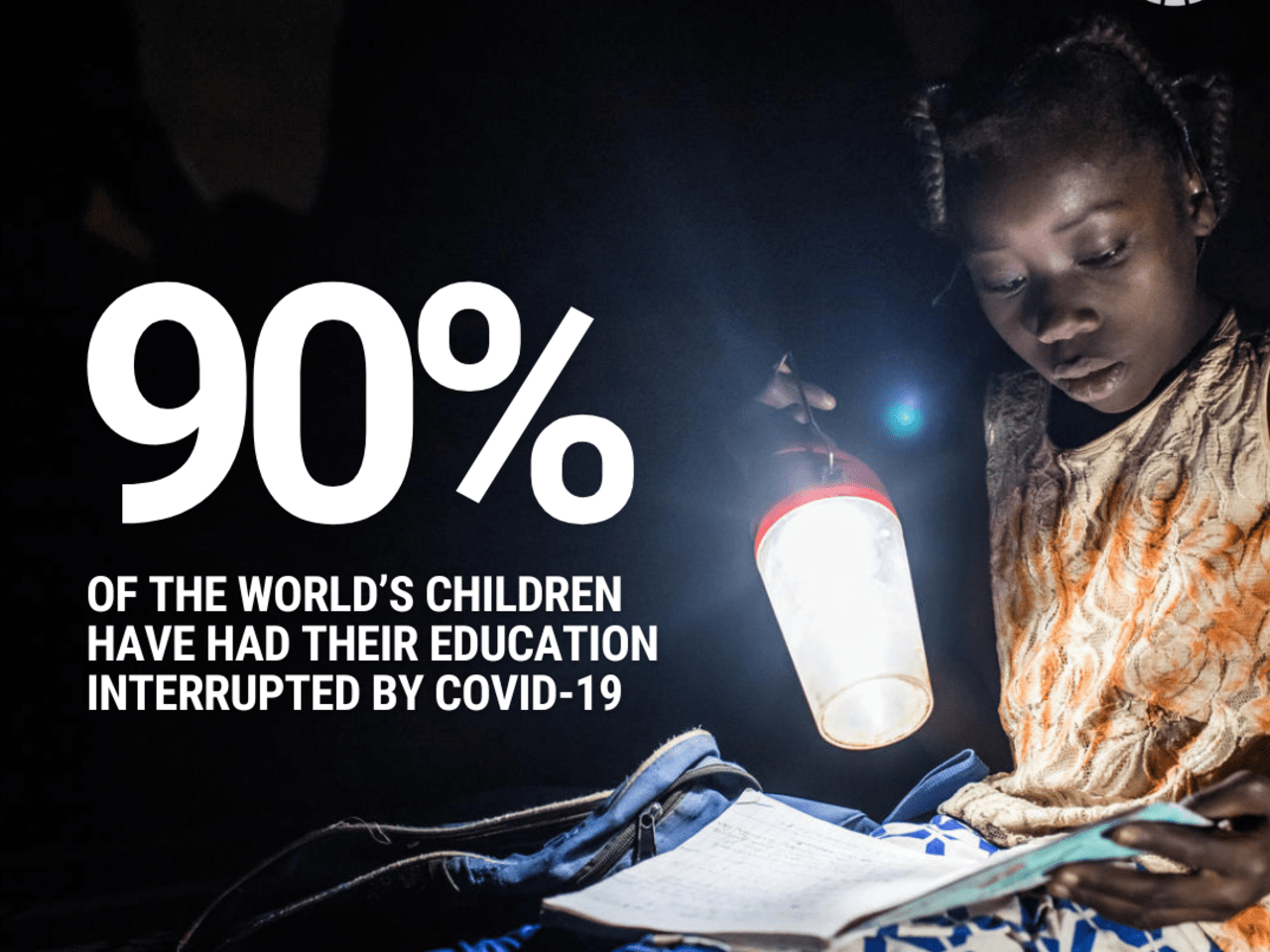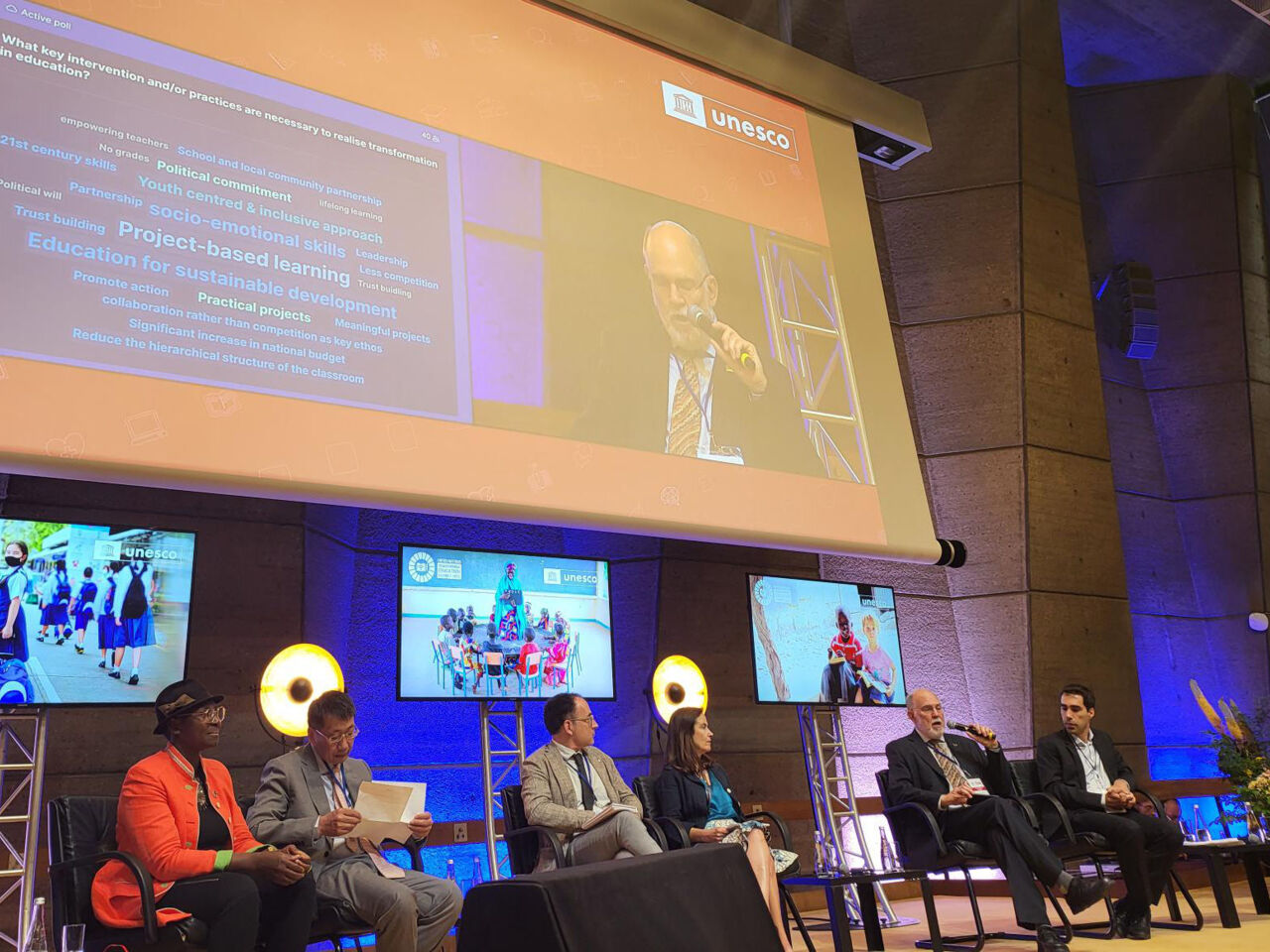26 October 2022
UNESCO unveils new strategy to transform TVET
Technical and Vocational Education and Training (TVET) has a critical role to play in industrial, economic, technological, and social transitions. This week, UNESCO launched a seven-year TVET strategy that will ensure these transitions are successful and just.
Fresh from the UN Transforming Education Summit in September, which saw over 100 Member States pledge to embed sustainability and global citizenship into their curricula, UNESCO has released a new seven-year strategy that promises to transform TVET and cements its role in enabling successful and just transitions across a number of socio-economic areas.
UNESCO calls this strategy “a new social contract to repair injustices, solve the skills deficits affecting labour market insertion, and further learning and career progression for both youth and adults”. With its launch, UNESCO hopes to mobilize Member States and help them respond to the urgent, ever-changing needs of their labour markets, economies, and societies.
The strategy was shared at an international conference in Bonn on 25 and 26 October 2022. Laurence Gates from WorldSkills Board joined the panels that address the political strategy and focus on rethinking TVET governance.
Delegates heard how the new UNESCO Strategy for TVET 2022–2029: Transforming Technical and Vocational Education and Training for Successful and Just Transitions (PDF, 292KB) builds upon the previous 2016-2021 strategy, but with greater acknowledgement of TVETs vital role in building resilience and recovery in a number of interrelated areas. The strategy focuses on three priority areas:
- Develop skills for all individuals to learn, work, and live. The focus here is on inclusion and technical assistance to mitigate the impact of technology and climate change on marginalized communities and those dependent on informal economies.
- Develop skills for inclusive and sustainable economies. The focus here is on the transition towards a digital and green economy and 21st century skills and innovation.
- Develop skills for inclusive and peaceful societies. The focus here is on TVET for global citizenship, social integration, and cohesion.
The strategy has been developed in consultation with UNESCO Institutes, the UNESCO-UNEVOC International Centre for TVET, UNEVOC Network members, and the Inter-Agency Group on TVET (IAG-TVET), as well as through an international conference held in December 2021.
The strategy responds to the varied and interconnected transitions that risk exacerbating existing inequalities or injustices, many of which were accelerated or exposed by the COVID-19 pandemic. Those inequalities addressed in the strategy include:
- Unequal economic recovery – the severe recession in 2020 has left less developed economies facing deeper long-term impacts on their learning, training, and unemployment rates, where the number of young people in employment fell by 39 million in 2020.
- Access to education and training – the pandemic saw schools, training centres, and workplaces close down which disproportionally affected young people and vulnerable communities. Educational content and teaching went online, making it only accessible to those with digital devices and internet access.
- Demographic transitions – Some countries are facing rapidly ageing populations where a shrinking workforce must support a larger number of older people, while other countries have “youth bulges” which require an expansion of education and training, and more jobs.
- Technological change – the rapid acceleration of technology such as AI and automation is simultaneously creating new jobs as well as replacing them. Some sectors face severe decline and workforce displacement. Others are having to adapt to the rise of the “gig economy” that is challenging formal work habits, worker benefits and places of work.
- Sustainable human development – political instability and climate breakdown are leading to large-scale migrations with the global displacement of workers and a movement of skills. The climate crisis is also generating an increased demand of workers with technical skills in green jobs, which in turn is leading to pressure to radically transform our world economy.
With TVET sitting at the intersection of all these transitions, UNESCO stresses how it is paramount that Member States renew their ambitions around building more effective, relevant TVET systems. The launch event created space to help delegates understand the urgent need to reimagine skills for work and life and give them the chance to discuss the challenges and opportunities ahead.
Grace Lung, Senior Manager of Partnership Programmes at WorldSkills, urges Members and Global Partners to participate in the event. She said: “We are all aware of the growing need for more effective and relevant TVET systems, so that we can close the ever-widening poverty gap, rebalance gender inequalities, improve access to education for minority groups, and nurture green skills to help industries transform and meet net zero targets. There is huge anticipation for this new strategy from UNESCO and it promises to be of great significance to our WorldSkills community.”
Related
-

UN Transforming Education Summit: A partnership to close the green skills gap
14 November 2022
-

UN Summit embeds sustainability and equality into education systems
30 September 2022
-

Two weeks until the UN Transforming Education Summit
2 September 2022
-

WorldSkills takes part in the United Nations Transforming Education Summit
22 July 2022